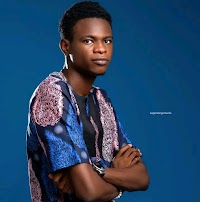In a bid to calm frayed nerves and move
forward following the sex scandal involving
senior Catholic officials, a delegation of U.S.
cardinals and bishops is to meet Thursday
with Pope Francis.
The meeting is also coming amid a crisis of
confidence in church leadership following
revelations of new sex abuse and cover-up
that have also implicated Pope Francis
himself.
Cardinal Daniel DiNardo, head of the U.S.
Conference of Catholic Bishops, requested
the audience last month following
revelations that a now-disgraced ex-
cardinal, Theodore McCarrick, had risen
through church ranks despite allegations of
sexual misconduct that were known in U.S.
and Vatican circles.
As well as requesting a full-fledged Vatican
investigation into the McCarrick affair,
DiNardo wants answers to allegations that
a string of Vatican officials — including
Francis — have known of McCarrick’s
misdeeds since 2000, but turned a blind
eye.
DiNardo is heading the U.S. delegation and
is accompanied by Boston Cardinal Sean
O’Malley, Francis’ top sex abuse adviser, and
other officials from the U.S. conference.
The Vatican hasn’t responded to allegations
by its former ambassador to the U.S.,
Archbishop Carlo Maria Vigano, that Francis
rehabilitated McCarrick from sanctions
imposed by Pope Benedict XVI over
allegations McCarrick would routinely invite
seminarians to his beach house and into
his bed.
Francis removed McCarrick as a cardinal in
July after a U.S. church investigation said an
allegation that he groped a teenage altar
boy in the 1970s was credible.
After news broke of the sanction, several
former seminarians and priests came
forward to report that they too had been
abused or harassed by McCarrick as adults.
The McCarrick affair coupled with
revelations in the Pennsylvania grand jury
report detailing decades of abuse and
cover-up in six dioceses has fueled outrage
among the rank-and-file faithful who had
trusted church leaders to reform
themselves after the abuse scandal first
erupted in Boston in 2002.
The outrage has also been directed at
Francis and the Vatican and has fueled
conservative criticism of Francis’ mercy-
over-morals priorities.
Francis has responded with a series of
initiatives aimed at trying to convince the
faithful that he “gets it” and is prepared to
take measures to put an end to what he
has called the “culture of cover-up” in the
church.
On the eve of the U.S. audience, Francis
announced he was summoning the
presidents of bishops conferences around
the world to a February summit to discuss
prevention measures and protection of
minors and vulnerable adults.
However, Francis is still dealing with the
fallout from his botched response to the
abuse scandal in Chile.
Francis had repeatedly discredited victims
of the country’s most notorious predator,
the Rev. Fernando Karadima, and defended
a bishop accused of covering for his crimes.
Francis eventually admitted to “grave errors
in judgment” and took steps to make
amends, including securing offers of
resignation from every active member of
Chile’s bishops’ conference.
Even DiNardo’s own record on protecting
children has now come into question. On
the eve of his audience with Francis, The
Associated Press reported that two victims
in Houston had accused him of not doing
enough to stop a priest who was arrested
this week on sexual abuse charges.
The archdiocese issued a statement
Wednesday confirming that both people
had come forward to report abuse by the
priest, the Rev. Manuel LaRosa-Lopez, one of
them in 2001. The priest is now the pastor
at St. John Fisher Catholic Church in
Richmond while also serving as the
archdiocese’s episcopal vicar for Hispanics.
In his capacity as president of the U.S.
conference, DiNardo has been outspoken in
calling for greater protections for children
and accountability.
He announced in August that he wanted a
Vatican investigation known as an apostolic
visitation into the McCarrick affair, working
in concert with a group of predominantly
lay experts.
“We are faced with a spiritual crisis that
requires not only spiritual conversion, but
practical changes to avoid repeating the
sins and failures of the past,” DiNardo said
in an Aug. 16 statement.
“I have no illusions about the degree to
which trust in the bishops has been
damaged by these past sins and failures.”
Any in-depth investigation of the McCarrick
case is likely to shed light on the timetable
for when senior Catholic officials in the U.S.
and the Vatican know about the multiple
allegations against McCarrick.
A priest, the Rev. Boniface Ramsay and a
group of concerned Catholics sought to
warn Vatican officials about McCarrick in
2000, but he was still appointed
Washington archbishop and made a
cardinal in 2001.
Post a Comment
0Comments



Love What You Read? Comment Here